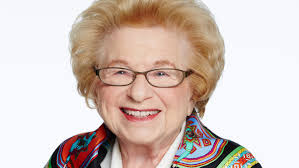Original Post Published On The Jerusalem Post
Welcome to City Winery’s Annual Downtown highly interpretive Seder. The Seder will take place Thursday, March 25 at 7 p.m. EST, two days ahead of Passover, and is free and live from City Winery.
NEW YORK – Imagine a Seder where Dr. Ruth offers a sexual take on the afikomen, comedian Judy Gold offers her unique interpretation of “Dayenu,” the four cups of wine are blessed by four different Manhattan mayoral candidates, and musical performers include David Broza, Idan Raichel, Marc Cohn, Macy Gray, Perry Farrell of Jane’s Addiction, Max Weinberg of Bruce Springsteen’s E Street Band and Speech of Arrested Development.
Welcome to City Winery’s Annual Downtown highly interpretive Seder. The Seder will take place Thursday, March 25 at 7 p.m. EST, two days ahead of Passover, and is free and live from City Winery, Pier 57 in New York City (RSVP at citywinery.com).
The annual tradition, which has taken place for 27 years, is hosted by Michael Dorf, the entrepreneur, independent music promoter and philanthropist who founded such music venues as Manhattan’s Knitting Factory, the City Winery restaurant/winery/music venue franchise, and Tribeca Hebrew, an after-school program in Lower Manhattan. Dorf is also the chairman of Lab/Shul which, according to the website, is “an everybody-friendly, artist-driven, God-optional, experimental community for sacred Jewish gatherings based in NYC and reaching the world.”
The Jewishly committed Dorf grew up in Milwaukee, Wisconsin, where the Seder was “very personally satisfying and fulfilling with so much meaning.” Dorf fondly recalls his father making the children listen to Martin Luther King’s “I Have a Dream” speech each year.
“We always made the seder as relevant as possible.”
When Dorf founded the Knitting Factory, he remembered this experience. “The scene was Jewish avant-garde and African-American jazz musicians. Weaving the theme of the liberation struggle into something was very important.” Thus, the yearly Seder was born.
“I took liberally the beginning of the Haggadah which says, ‘Tell the story of the leaving of Egypt in the language you understand,” reports Dorf. “For me, the language I understood was not Aramaic or Hebrew – it was the language of the arts.” Dorf began considering ways to “bring poets, musicians and political thinkers together to tell the story in a language they understood.”
PAST SEDERS have included interpretative dances that literally took place on matzah (Dorf recounts playfully, “It made a mess of the stage!), and saxophonist and multi-instrumentalist John Zorn playing the “bad child” to Philip Glass’s “simple child.” Last year, more than 4,000 people tuned into City Winery’s online event, and the YouTube video has grown to over 33,000 views.
In the years prior to the pandemic, 300 people typically assembled for the in-person Seder and meal in New York, with dozens more attending Seders at various City Winery locations across the United States. Dorf is quick to stress, “I don’t believe mine is a substitute for doing the Seder with family or in small groups.” For that reason, the City Winery Seder takes place before Passover. He is pleased when people bring elements of the City Winery Seder home.
“It is a stimulating, fun, entertaining evening which gets people going, making symbolic connections to the Seder plate.” There are always many additional requests from those unable to attend the Seder for copies of the Haggadah that Dorf and his team produce anew each year.
For Dorf, producing and hosting the Seder each year continues to be relevant.
“Every year, there is a very important reason to re-look at the ancient text. The reason has never been more important with hatred, antisemitism and racism on the rise. In addition, it is only two months since the insurrection [at the Capitol in Washington, DC] and divisiveness like this has never before been seen in our country. This is an important time to be breaking bread with our African-American brothers.”
Dorf and his team had considered a number of options for this year’s Seder, including hosting up to 100 people at City Winery in New York. But as regulations for indoor and outdoor dining kept changing and most musicians were not physically in New York, Dorf decided to feature most musical guests by video. Ten or 12 family members and friends will join Dorf on location in New York. He is pleased to physically host the Seder at the City Winery New York, which is scheduled to reopen for dinner and drinks on March 17.
“I care very much about my adopted hometown. In many ways, New York is a metaphor for the rest of the country and for what we need to do to rebuild safely.”
Perhaps Dorf and his guests will end their Seder with a special prayer that should take place in-person “Next Year in New York!”


